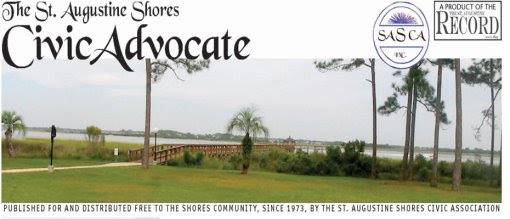There are hundreds of stories in newspapers and websites about the association management, staff, and board members spending money without accountability and downright unethical directors who steal association funds or find a way to benefit one way or another. With the alarming number of homeowner association members or owners complaining about fraud - or perceived fraud - we need to turn the spotlight on fiduciary responsibility.
We should all know that it is individuals that commit the act of fraud, not corporations. Community associations are a type of corporation that lacks the corporate-like investigatory body to flush out suspicious activities. In other words, most members of community associations are not equipped to expose fraud.
In most cases, catching the bad guys stealing association funds or diverting them for their own needs is left to individual members. Maybe a director, maybe an owner, somebody has to do the work before getting authorities involved.
How do you find the proof?
You have to ask questions, request an appointment to review association records, read through financial statements, reports, receipts, etc., obtain copies and create your own investigation file.
There are an alarming amount of indications of increased losses suffered by associations from fraud and embezzlement. With all of the recent high-profile corporate and nonprofit scandals there is a heightened awareness of a board's fiduciary responsibilities, leaving a need for associations to review and revise procedures. The opportunities to commit fraud do not magically disappear and are an ever-present danger to your community.
While the number of association fraud cases is growing, including many high-profile cases, there are currently no central statistics about the amounts of fraud and its effect on individual associations available.
The first part of the problem is the difficulty of detecting fraud. When fraud is detected unfortunately it is not always reported. It can be very damaging - resulting in financial losses, damage to an association's reputation, negative publicity, internal upheaval, and in many cases, loss of owner's amenities and basic improvements needed for the community.
As more and more fraudulent activities surface, involving misappropriation of assets and issuance of misleading financial reports, fraud and business ethics have become hot topics. Homeowners should start discussions regarding ethics, moral dilemmas, and ways to establish internal control procedures to prevent and deter theft in their individual homeowner's association.
Homeowner's associations are particularly vulnerable to misappropriation and or fraud for a number of reasons, which includes a high environment of trust because Board Members are volunteers and your neighbors. They are rarely suspected of acting in deceptive behaviors. The atmosphere in an HOA results in a higher level of trust than that associated with most for-profit businesses.
In a high percentage of HOA's, the association management, staff, and board members are sometimes unfamiliar with the importance of strong accounting and financial controls. It is also obvious Board members are sometimes reluctant to get involved in association financial operations or don't realize that accountability and control of funds is critical to short-term success and long-term survival. Everyone involved, not just the treasurer, has a fiduciary responsibility to understand the financial aspects of operating an association and making sure that fraud and misappropriation of funds does not take place.
The common elements of a homeowner's association have set the stage for fraud. In general, they lack effective internal accounting control procedures - including separation of duties and responsibilities, a lack of proper documentation to substantiate possible counterfeit transactions, and fail to establish line item checks on spending or performance. In almost all cases it is fairly simple for each fraudster, put in a position of trust, to commit multiple acts of fraud that go unnoticed for a long period of time.
Fraud involves the unlawful activity, with malicious intent, for the financial benefit of an individual. Fraud includes several elements including, misrepresentation or concealment of significant information by the perpetrator, the victim's reliance on the perpetrator's misrepresentations, and the victim's loss of something valuable.
Then when you add greed, lack of ethics, and an oversized ego, you have the ingredients for a fraud scheme that can negatively affect an association and its members.
At the beginning, fraud is not always obvious to others in the HOA, although, red flags always will emerge. The largest sign is people who commit fraud generally have difficulty looking other people straight in the eye, become easily annoyed, they become defensive and overly argumentative, and find excuses and like to blame others when the fraud surfaces that he or she is trying to conceal.
If you discover that fraud is happening in your homeowners association, it is critical to take the following steps without delay:
- Start a process to have the suspected fraud perpetrator removed from a position of control.
- Keep track, organize and secure all documents and evidence related to the misappropriation or fraud.
- Consider reporting the problem to the police or local authorities. (The reporting of the crime serves other purposes, including deterring other employees from committing further fraudulent acts.)
You will need to provide information concerning the date, time, and place of the occurrence of the fraudulent activity and the manner in which the alleged crime appears to have been committed.
If your homeowner's association has fidelity insurance coverage, consider calling the insurance company and filing a claim.
Do not call your association's attorney to obtain advice about how best to proceed as they work for the association and board members.
Remember, fraud often starts small and can exist in any homeowners association. Homeowners need to take whatever measures are necessary in order reduce the likelihood of financial mismanagement and fraud.
We must be vigilant against fraud, recognizing its signs and taking proactive, definite, and realistic steps to not only prevent it but also punish it.
It starts with me.
It starts with you..
It starts with us...
Written By: Michael S. Richardson
Author of "An American Epidemic, Mortgage Fraud a Serious Business"
RELATED STORIES
Former Homeowners' Assoc. Treasurer Accused Of Fraud


